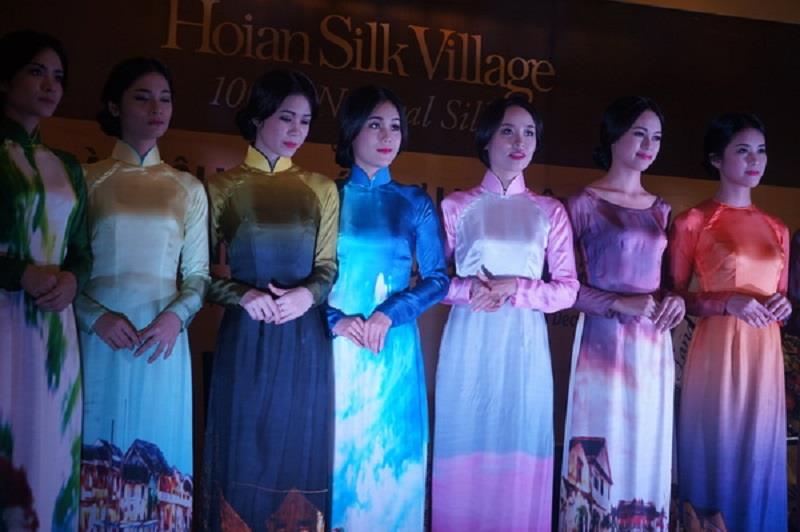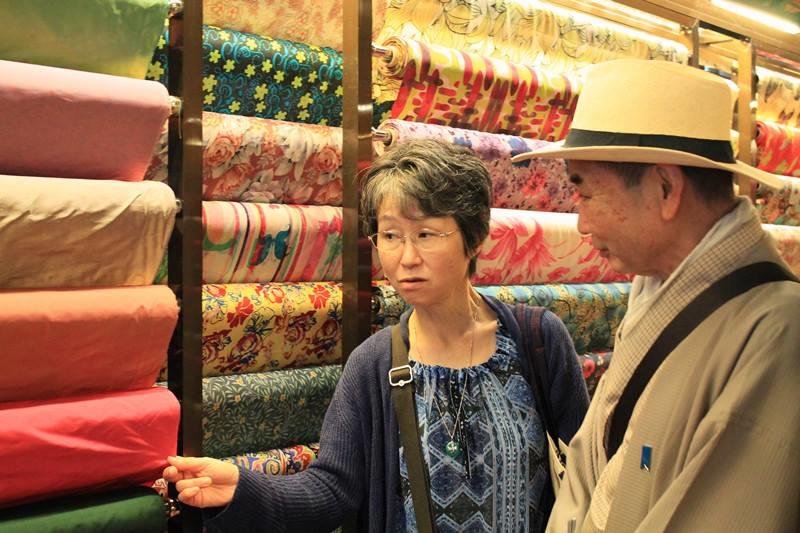On December 28th, 2014, in Hoi An Silk Village (at 28 Nguyen Tat Thanh Street) Vietnam ASEAN Silk Festival took place. The event is also held to celebrate the 15th Anniversary of Hoi An Ancient Town receiving UNESCO Recognition as World Cultural Heritage, the 5th Anniversary of Cu Lao Cham Island - Hoi An recognized as the world's biosphere reserve and to welcome the New Year 2015. The project of "Hoi An Silk Village" has been promoted and recovered steps producing traditional products such as: mulberry cultivation, silkworm rearing, reeling, and weaving. The project has developed a village model based on restoring the status quo village near the ancient silk village. The model shows the interaction, acculturation between Vietnamese culture and Champa culture.

Vietnam-ASEAN Silk Festival gathered 32 artisans from Hoi An Silk Village and 7 typical silk villages in the country such as: Van Phuc Silk Village, Phung Xa Silk Village, Nha Xa Silk Village, Ma Chau Silk Village, Tan Chau Silk Village, Bao Loc Textiles, My and Nghiep Cham Village. Here, artisans will show off their stages of making silk, weaving, and making silk products. In the event, there is an exhibition with over 500 typical silk products of 8 handicraft villages and other silk products from ASEAN countries such as: Thailand, Philippines, Malaysia, Cambodia, Indonesia, and Japan. In the Vietnam ASEAN Silk Day, there was an offering incense ceremony to Tam Tang Princess (Princess of silkworm), opening showrooms of Ly Silk products and products of silk villages in Vietnam, Ao Dai fashion show, traditional music and dances, and local culinary fairs. There was a meeting program with artisans of silk villages in Vietnam and Japan.
"Vietnam-ASEAN Silk Cultural Festival was held for the purpose of introducing product exchanges between the typical villages of Vietnam silk, silk of Southeast Asia and of Japan. This is a meeting opportunity for people in the industry to look back at the history of the development and exchange of experiences on the industry and the future direction to suggest strong connection with the cooperative production of high-quality Vietnam silk. Through displays of products, making silk, and fashion shows to express gratefulness, artisans, producers, and designers have been making their effort to reserve and develop silk industry in Vietnam. This also helps Mac culture in Hoi An more diverse and meaningful" said Mr. Le Thai Vu - General Director of Hoi An Silk Village. Besides, Mr. Takao Watanabe, Chairman of the Board of Directors of Nishijin, Chairman of Kyoto Textile Industry Association, and President of the Association of Japanese Silk said that Japan will convey professional experiences as well as open new connections between Hoi An (Vietnam) and Japanese enterprises.

Besides, artisans and Vietnamese silk are also honored to welcome and listen to representatives of Kyoto Textile Technology Association (Japan) exchanging and introducing traditional silk weaving of Japan, thereby, promoting trade on Japanese professional Silk and Hoi An silk in particular and Vietnam silk in general. Speaking at the ceremony, Mr. Nguyen Duc Hai - Member of the Central Party Committee, Party Secretary of Quang Nam said that the Hoi An Silk Village organized the official festival is a very meaningful activity for artisans and traditional silk industry of the country. According to him, this initiative needs maintaining, creating a chance to interact and take Vietnam traditional silk and textile brands to the world.
The festival is a place to exchange professional experiences in silk production in Vietnam and Southeast Asia, and to predict the future trend of silk development, to suggest a strong connection to the silk development and Vietnam silk products with high quality. Also, it is an opportunity to honor the artisans, producers, designers who have devoted efforts to preserve and develop silk production and enriching Mac culture.
